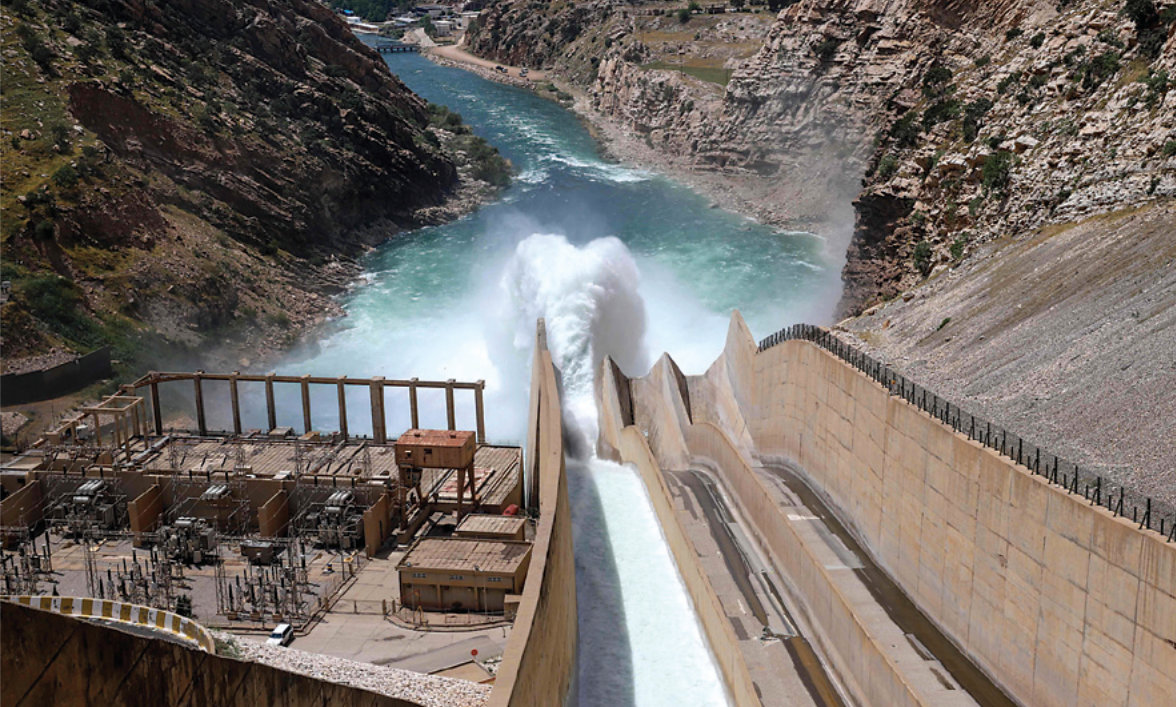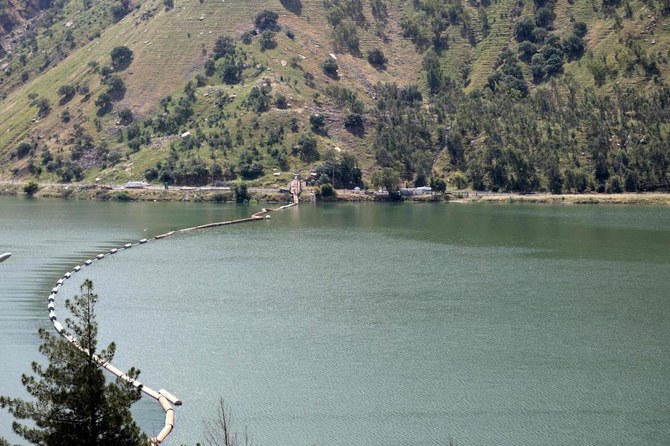JEDDAH: Iraqis are celebrating after heavy rainfall ended five consecutive years of drought. The reservoir behind the massive Darbandikhan dam on the River Sirwan in the autonomous Kurdistan region of northeast Iraq is one of many that are almost full again.
“The dam’s storage capacity is 3 million cubic meters. Today, with the available reserves, the dam is only missing 25 cm of water to be considered full,” reservoir director Saman Ismail said.
Built on the River Sirwan, the dam is located south of the city of Sulaimaniyah in Iraq’s autonomous Kurdistan region.
“In the coming days, we will be able to say that it’s full,” said Ismail, with the water just a few meters below the road running along the edge of the basin.

The Darbandikhan dam’s storage capacity is 3 million cubic meters. (AFP)
The last time Darbandikhan was full was in 2019, and since then “we’ve only had years of drought and shortages,” said Ismail. He blamed climate change, and dam construction beyond Kurdistan.
The central government in Baghdad says upstream dams built in Iran and Turkiye have heavily reduced water flow in Iraq’s rivers, on top of rising temperatures and irregular rainfall.
This winter, however, bountiful rains have helped to ease shortages in Iraq, considered by the United Nations to be one of the five countries most vulnerable to some impacts of climate change.
In Iraq, rich in oil but where infrastructure is often run-down, torrential rains have also flooded the streets of Kurdistan’s regional capital Irbil.
Four hikers died last week in floods in Kurdistan, and in Diyala, a rural province in central Iraq, houses were destroyed.
Ali Radi Thamer, director of the dam authority at Iraq’s water resources ministry, said that most of the country’s six biggest dams have experienced a rise in water levels.
At the Mosul dam, the largest reservoir with a capacity of about 11 billion cubic meters, “the storage level is very good, we have benefitted from the rains and the floods,” said Thamer.
Last summer, he added, Iraq’s “water reserves... reached a historic low.”
“The reserves available today will have positive effects for all sectors,” Thamer said, including agriculture and treatment plants that produce potable water, as well as watering southern Iraq’s fabled marshes that have dried up in recent years.
He cautioned that while 2019 saw “a sharp increase in water reserves,” it was followed by “four successive dry seasons.”
Water has been a major issue in Iraq, a country of 43 million people that faces a serious environmental crisis from worsening climate change, with temperatures frequently hitting 50 degrees Celsius in summer.
“Sure, today we have rain and floods, water reserves that have relatively improved, but this does not mean the end of drought,” Thamer said.
About five kilometers (three miles) south of Darbandikhan, terraces near a small riverside tourist establishment are submerged in water.
But owner Aland Salah prefers to see the glass half full.
“The water of the Sirwan river is a blessing,” he said. “When the flow increases, the area grows in beauty. We have some damage, but we will keep working.”
(With AFP)
























